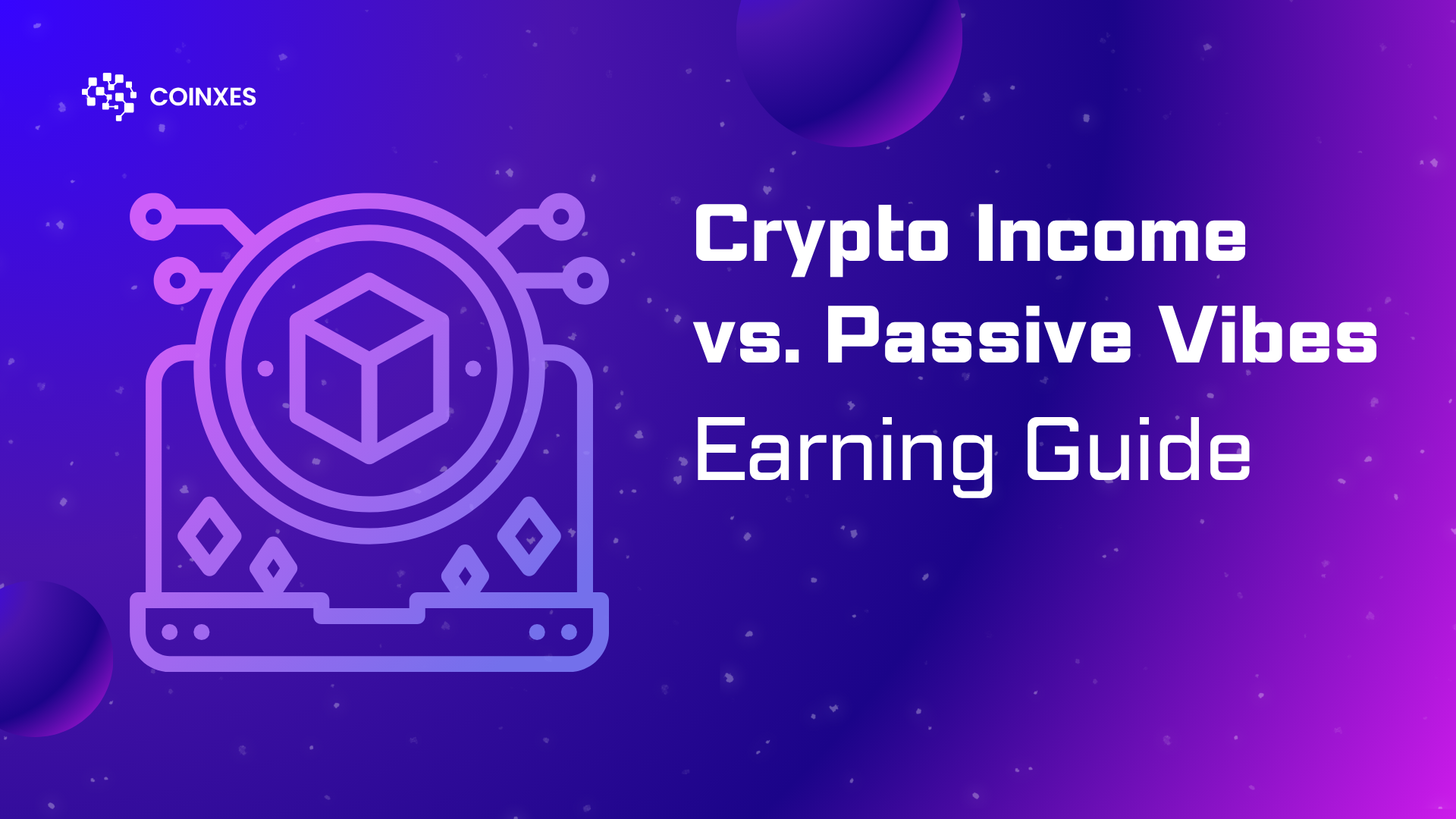
Cryptocurrencies offer diverse income opportunities, from active trading to passive strategies. Whether you’re a seasoned investor or a beginner, understanding the differences between active crypto income and passive crypto income is key to maximizing your returns. This guide explores both approaches, compares their risks and rewards, and provides actionable steps to build a strategy tailored to your goals.
Introduction: Crypto Income Explained
Crypto income refers to earnings derived from cryptocurrency investments, which can be categorized into two main types:
- Active Income: Requires hands-on participation, such as trading or mining.
- Passive Income: Generates rewards without continuous effort, such as staking or yield farming.
Both approaches have unique advantages and challenges. Let’s dive into how they work.
Active Crypto Income: High Risk, High Reward
Active crypto income involves direct engagement with the market, often requiring time, skill, and constant monitoring.
Popular Active Strategies
- Day Trading
- Buy and sell cryptocurrencies within short timeframes to capitalize on price fluctuations.
- Requires technical analysis and quick decision-making.
- Arbitrage
- Exploit price differences between exchanges by buying low on one platform and selling high on another.
- Demands rapid execution and a deep understanding of market dynamics.
- Mining
- Use computational power to validate transactions and earn block rewards (e.g., Bitcoin mining).
- High upfront costs for hardware and electricity, with rewards declining over time.
Pros and Cons of Active Income
- Pros: Higher potential returns, control over investments.
- Cons: Time-intensive, vulnerable to market volatility, and requires continuous learning.
Passive Crypto Income: Effortless Earnings
Passive income strategies allow users to generate crypto rewards without daily involvement. These methods align with blockchain protocols’ mechanisms to reward participants for supporting the network.
Top Passive Income Methods
- Staking
- Lock cryptocurrencies in a blockchain network to validate transactions and earn staking rewards.
- Popular with Proof-of-Stake (PoS) coins like Ethereum (ETH), Cardano (ADA), and Tezos (XTZ).
- How It Works : Stakers “lock” coins to participate in consensus; rewards depend on network activity and coin value.
- Yield Farming
- Lend crypto assets to decentralized finance (DeFi) platforms to earn interest or fees.
- Platforms like Compound or Aave offer APYs (Annual Percentage Yields) based on asset demand.
- Risk : Exposure to smart contract vulnerabilities and market volatility 2.
- Lending
- Earn interest by lending crypto to borrowers via centralized (e.g., BlockFi ) or decentralized (e.g., MakerDAO ) platforms.
- Pros: Predictable returns; Cons: Counterparty risk (borrowers defaulting).
- Crypto Savings Accounts
- Deposit crypto into platforms like Crypto.com or Paxos for fixed or variable interest rates.
- Lower risk compared to DeFi but typically lower returns.
Pros and Cons of Passive Income
- Pros: Low effort, steady income, accessible to beginners.
- Cons: Lower returns compared to active strategies; exposure to blockchain-specific risks.
Crypto Income vs. Passive Income: A Direct Comparison
| Factor | Active Income | Passive Income |
| Effort Required | High (constant monitoring/trading) | Low (set-and-forget) |
| Time Commitment | Daily/weekly | Monthly/quarterly |
| Risk Level | High (market volatility, execution risks) | Moderate (protocol risks, liquidity issues) |
| Reward Potential | Higher (if successful) | Steady but lower |
| Entry Barrier | High (skills, capital) | Low (minimal crypto knowledge) |
How to Choose the Right Strategy
1. Assess Your Risk Tolerance
- High Risk Tolerance: Opt for active strategies like trading or yield farming.
- Low Risk Tolerance: Prioritize passive methods like staking or crypto savings accounts.
2. Align with Financial Goals
- Short-Term Gains: Active trading or arbitrage.
- Long-Term Growth: Passive staking or lending.
3. Diversify Your Portfolio
Combine both approaches to balance risk and reward. For example:
- 50% Passive: Staking ETH and lending BTC.
- 50% Active: Day trading altcoins.
Final Tips for Success
1. Start Small
Begin with low-risk passive strategies (e.g., staking) to gain experience before moving to active methods.
2. Research Platforms
Verify the security and reputation of exchanges, wallets, and DeFi protocols. Avoid platforms with poor reviews or unclear terms.
3. Monitor Market Trends
Even passive strategies require occasional checks. Stay informed about blockchain upgrades, protocol changes, and market shifts.
4. Tax Implications
Track earnings for tax purposes. Many platforms provide tax reports, but consult a professional if unsure.
FAQ
What is the easiest way to earn passive income in crypto?
Staking is beginner-friendly. Platforms like Coinbase or Kraken offer staking options with minimal setup.
Is passive crypto income taxable?
Yes, in most jurisdictions. Treat crypto earnings as income or capital gains.
Can I lose money with passive strategies?
Yes. Risks include price drops, protocol failures, and smart contract exploits. Always diversify and research projects.
How much money do I need to start?
Most platforms require $100–$500 for staking or lending. Micro-investing options exist on platforms like Paxos.
Are there no-effort passive income methods?
No —some setup is required (e.g., choosing assets or platforms). However, once configured, these strategies require minimal maintenance.
Conclusion
The crypto market offers versatile income opportunities, whether you prefer active crypto income for high returns or passive crypto income for steady rewards. By understanding your risk appetite, diversifying strategies, and staying informed, you can build a sustainable earning plan. Whether you’re chasing “passive vibes” or active gains, the key is to align your choices with your financial goals and comfort zone.